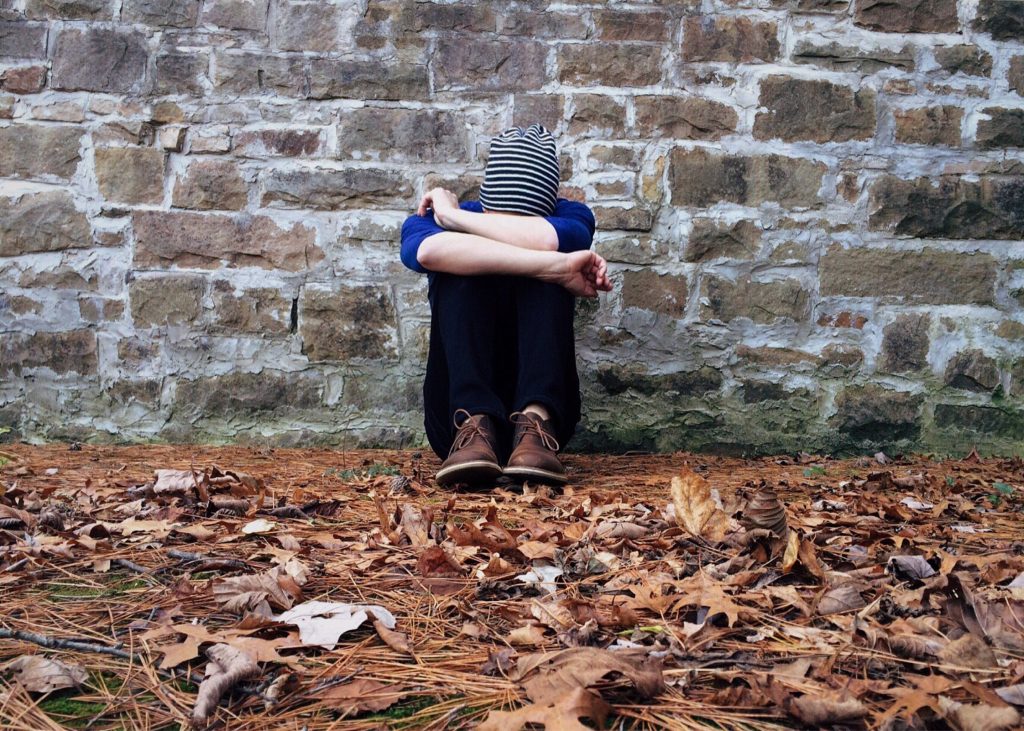15 Tips for How to Deal with Rejection
Rejection is never fun. Whether it’s from a job, a date, or even just an idea, it can hurt. But it’s possible to learn strategies that teach you how to deal with rejection.

Rejection is never fun. Whether it’s from a job, a date, or even just an idea, it can hurt. But it’s possible to learn strategies that teach you how to deal with rejection.
There are ways of processing that pain and getting past it. In this post, we’re going to share with you our top tips for dealing with romantic rejection and moving forward with your life.
You know what they say…what doesn’t kill you makes you stronger. Hang in there – we’ll get through this together.
Why rejection hurts so much
Rejection is so painful because we have evolved to seek acceptance and belonging. We have a natural instinct to want to be part of something larger than ourselves, like a family, community, or tribe.
Historically, we were more likely to survive if we were part of a group of people rather than individuals fending for ourselves, and this still holds true today to some extent. As a result, we’ve evolved with an innate desire for human connection.
When we get rejected, it feels deeply uncomfortable because we have been programmed over the course of thousands of years to value belonging. On a deeper level, being rejected shakes our sense of security and safety.
The good news is that rejection nowadays isn’t life-threatening. It can feel like it is, but in reality, the world won’t end just because someone said ‘no’ to you.
15 tips for dealing with rejection
So, we’ve discussed why rejection is so painful. Let’s now take a look at our 15 tips for how to deal with rejection.
1. Accept your emotions.

The first step when dealing with rejection is to accept your emotions. Burying your feelings can be a quick short-term fix, but it’s not healthy in the long run. It’s normal to experience sadness, anger, disappointment, or whatever else you might be feeling. Emotions are our body’s way of telling us to take action. Numerous studies have shown that ignoring our emotions can negatively impact our physical and mental health, so try your best to avoid doing so. Take however much time you need to feel what you’re feeling before moving forward.
2. Don’t let rejection define you.
Just because you’ve been rejected, it doesn’t mean that there’s something innately wrong with you. It just means that you aren’t right for that specific person at that time. Experiencing rejection doesn’t mean you are unlovable or undatable. You won’t be a perfect match for absolutely everyone; no one is. There are billions of people in the world, and your self-worth should never depend on a single person’s opinion. The right person will appreciate you and love you for who you are.
3. Learn from rejection.
There’s something to learn from every experience we have in life, particularly when it comes to dating. Take a step back and ask yourself what learnings you can take with you going forward. Perhaps whoever you were dating opened your eyes to fresh perspectives or introduced you to a new hobby. You might have noticed some unhealthy behaviors that you want to work on before your next relationship. Try to turn rejection on its head and make it into a positive — it can be a way of building resilience. In fact, sometimes rejection is a blessing in disguise, and it’s simply that they noticed something missing that you couldn’t see.
4. Be kind to yourself.
Try to resist the urge to write negative stories about yourself. There’s no denying that rejection is uncomfortable. In fact, a University of Michigan study showed that it activates the same areas of the brain as physical pain. It’s important to remember that it’s never helpful to add to the pain by beating yourself up and creating a negative narrative about yourself. Thoughts like, “I’m not smart enough” or “I’m not attractive enough” can be damaging. Don’t let your inner critic win. Instead, replace these narratives with positive thoughts.
5. Use rejection as fuel for personal growth.
As well as being kind to yourself, you also need to be honest with yourself. You don’t want to bury your head in the sand and not accept responsibility when you should. Perhaps there were specific situations that you could have handled better or certain aspects of yourself that you could work on. These can be tough pills to swallow, but you can turn rejection into an opportunity for personal growth. Use rejection as motivation to strive for self-improvement.
6. Recognize that there’s no one-size-fits-all.
When it comes to dating, there’s no one-size-fits-all. While one person might be attracted to the logical, mysterious type, someone else might fall head over heels for the bubbly party animal. It’s important to remember that everyone finds different traits attractive, and nobody is perfect. Your quirks that your ex found annoying might be adored by the next person you date. Reminding yourself of this can help you not to take rejection too personally.

7. Don’t dwell on rejection.
While it’s essential to accept your emotions, it’s also important not to dwell on rejection. You can quickly end up in a spiral of negative thoughts if you overthink things. There’s a balance to be found here. Ultimately, you need to accept your emotions and think about the situation long enough to learn from it. At the same time, you want to avoid ruminating. So what’s the difference? Emotional processing results in new ways of thinking and behaviors, while ruminating involves negative thought patterns that are all-consuming and repetitive.
8. Accept that rejection is part of life.
Rejection happens to everyone. No one can escape it, no matter how hard they try. From Megan Fox to Robert Pattinson, everyone faces rejection. The sooner you accept this, the sooner you can live with a greater sense of freedom and joy. It can be liberating to realize that rejection is simply part of life and you’re not the only one going through it. This is especially true when it comes to dating. Even though it will still feel painful, knowing that you’re not alone can help you to feel more resilient. Viewing rejection as part of the process rather than the outcome can help you shift into a more constructive and future-focused mindset. One day, you might be grateful for everything that happened.
9. Take a step back.
You can use rejection as a chance to take a step back and reassess your life. We often get caught up in day-to-day tasks, and we forget to look at the bigger picture. What does your ideal partner look like? What are your dating dealbreakers? Which kinds of personalities do you get on best with? Are you over your ex? Would you benefit from taking a break from dating? Rejection can give us the opportunity to think about what we truly want and if we’re pursuing the right path in all areas of our life, not just when it comes to dating. The fact that you’re reading this post about how to deal with rejection is a sign that you’re already doing this to some extent.
10. Practice self-care.
Self-care is important to your well-being in general, and even more so when you’re facing rejection. Give yourself permission to do something that makes you happy—whether it’s reading a book, practicing yoga, or going for a run. Self-care is about restoring and replenishing your mental and physical energy so that you can move on in life. If you’re not sure what brings you joy, take some time to figure it out. Make a list of activities that sound fun and try them one by one. It might just be what you need to help you heal from the rejection.
11. Talk to others.

You don’t have to go through the pain of rejection alone. Talking to friends and family who care about you can be therapeutic and make you feel less isolated. It can also help you gain perspective on the situation because you can start to lose sight of the bigger picture when you’re in the thick of it. If you’re willing and able to talk to a professional, seek out a therapist or life coach who can help you work through your feelings and develop new strategies for dealing with rejection. Either way, don’t underestimate the power of external support. Talking things through with people who care about you can help you process your emotions which will enable you to move on in the healthiest possible way.
12. Be kind to yourself.
Now, this doesn’t come naturally to everyone, but when you’ve been rejected, you should remember to be kind to yourself. Rejection can make you feel inadequate and unworthy of love, but it’s important to recognize that these thoughts aren’t true. There’s a time and a place for self-discipline and improvement, but during a period of rejection, it’s important to focus on self-love and acceptance. Try writing down a list of the things you love about yourself and carry it around with you. That way, when negative thoughts start to creep in, you can remember all the great things that make you unique.
13. Respect their decision.
At the end of the day, no matter how hard it may be, you have to accept and respect their decision. It’s not easy, but it’s important to remember that you don’t have any control over how they feel. Try to view the person who rejected you without animosity. Harboring negative feelings will only hurt you and won’t help to improve the situation. Remind yourself that everyone is allowed to choose who they want to be with, and just because they didn’t choose you, it doesn’t automatically make you a bad person. It’s okay to be disappointed, but try your best to show positive regard for their decision. Doing so will help you to move on faster and put the situation behind you.
14. Set boundaries.
Most of the time, rejection impacts our relationship with the person who rejected us. Depending on the situation, it might be best to distance yourself from them or try to maintain a platonic relationship. There’s no one right way to do this – every situation is different. However, you should decide what’s best for you, communicate this to the person who rejected you, and then stick to it. If there’s still a chance of a friendship, be sure to set boundaries so that your feelings don’t get hurt again. It’s also important to remember that you don’t owe them anything, and your mental health comes first. So, if you feel like blocking them is the best thing for you to do, then, by all means, do it.
15. Don’t let rejection hold you back.
Last but not least, don’t let rejection hold you back. Rejection can be so powerful that it can discourage us from doing things in case we get hurt again. Sometimes, you take a risk, and it doesn’t work out. Sometimes, you take a risk, and you strike gold. To live a fulfilling and rewarding life, you have to take chances. You can’t change the past, but you can change the future. Use rejection as fuel to move forward with your life and to seize new opportunities that come your way. You’ll never know what might have been if you don’t take a chance.
Use rejection as a stepping stone
Rejection is painful, but it can be a stepping stone toward the future you desire. By reframing your outlook and taking ownership of your emotions, you can become a stronger and wiser person for it.
However you are feeling right now, don’t give up on a happy future – instead, keep trying and take rejection as a learning opportunity. You just might be surprised at how much your life can change for the better. Time is a healer.
Share this post with anyone who is struggling with rejection
We hope this blog post helps you to overcome rejection. Ultimately, it’s important to remember that rejection doesn’t mean you’re not good enough. It just means the other person wasn’t the right one for you. When you bear this in mind, you can deal with rejection with grace and resilience.
If you’re looking for inspiration, you might like our 50 Greatest Quotes About Being Single blog post. And finally, share this post with anyone you know who is struggling with rejection and let them know that there are ways to learn how to deal with rejection.




